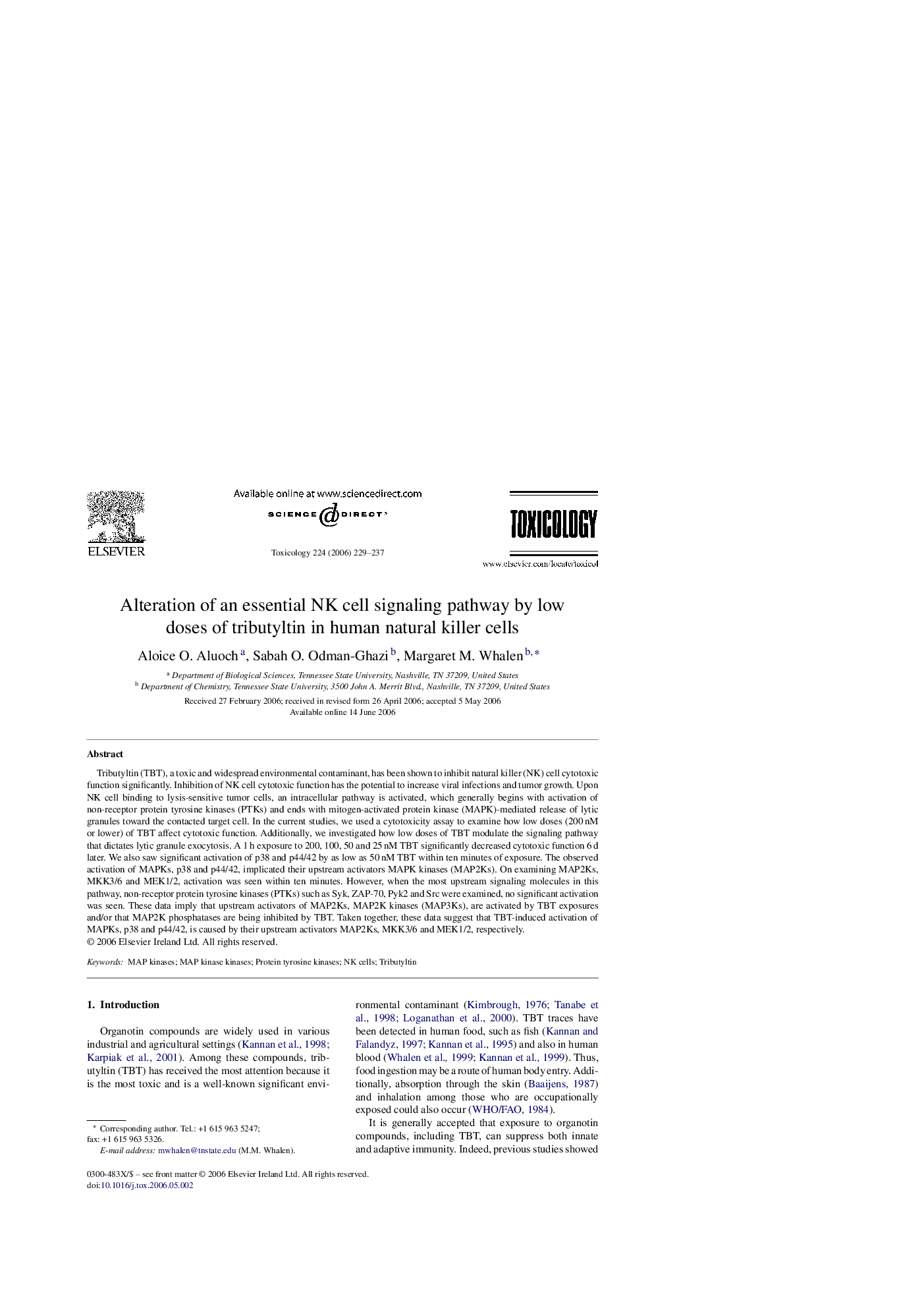| کد مقاله | کد نشریه | سال انتشار | مقاله انگلیسی | نسخه تمام متن |
|---|---|---|---|---|
| 2598147 | 1132619 | 2006 | 9 صفحه PDF | دانلود رایگان |

Tributyltin (TBT), a toxic and widespread environmental contaminant, has been shown to inhibit natural killer (NK) cell cytotoxic function significantly. Inhibition of NK cell cytotoxic function has the potential to increase viral infections and tumor growth. Upon NK cell binding to lysis-sensitive tumor cells, an intracellular pathway is activated, which generally begins with activation of non-receptor protein tyrosine kinases (PTKs) and ends with mitogen-activated protein kinase (MAPK)-mediated release of lytic granules toward the contacted target cell. In the current studies, we used a cytotoxicity assay to examine how low doses (200 nM or lower) of TBT affect cytotoxic function. Additionally, we investigated how low doses of TBT modulate the signaling pathway that dictates lytic granule exocytosis. A 1 h exposure to 200, 100, 50 and 25 nM TBT significantly decreased cytotoxic function 6 d later. We also saw significant activation of p38 and p44/42 by as low as 50 nM TBT within ten minutes of exposure. The observed activation of MAPKs, p38 and p44/42, implicated their upstream activators MAPK kinases (MAP2Ks). On examining MAP2Ks, MKK3/6 and MEK1/2, activation was seen within ten minutes. However, when the most upstream signaling molecules in this pathway, non-receptor protein tyrosine kinases (PTKs) such as Syk, ZAP-70, Pyk2 and Src were examined, no significant activation was seen. These data imply that upstream activators of MAP2Ks, MAP2K kinases (MAP3Ks), are activated by TBT exposures and/or that MAP2K phosphatases are being inhibited by TBT. Taken together, these data suggest that TBT-induced activation of MAPKs, p38 and p44/42, is caused by their upstream activators MAP2Ks, MKK3/6 and MEK1/2, respectively.
Journal: Toxicology - Volume 224, Issue 3, 25 July 2006, Pages 229–237